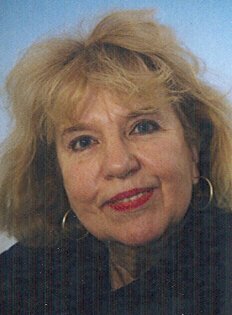Helga Ruebsamen, born in Jakarta, Indonesia, in 1934. Studied psychology and then left to take up journalism in 1955. Became a full-time novelist in 1988. Made her debut with a volume of short stories and went on to publish another five volumes of short stories and three novels.
Writer-in-Residence (1 September 2000 – 30 June 2001)
My stay at NIAS as Writer-in-Residence was an invigorating experience with both highs and lows. I came here to write a book that was to be the sequel to a novel I wrote earlier called The Song and the Truth, published in 1997. Wisdom, gained through experience, taught me not to expect to finish this book in ten months. The moment of a novel’s completion is difficult to predict or identify, even in hindsight. Often the writer does not even recognise the glorious moment for what it is. “Where there is a pregnancy, a birth will surely follow in due course”, answered Elsschot when people asked him when his book would, at last, be finished. True words, indeed. Not only that, a writer can only surmise whether the gestation period will be that of a mouse or an elephant.
When the moment finally arrives, and the book lies on the table before him, its creator may not immediately recognise that this brainchild is the finished product. Writers have been known to continue working on their book or story for several months well after the work is, in fact, complete. Not a single word needs to be added, but the maker is still obsessed by the urge to improve and embellish. It has happened to me more than once.
So, it is also entirely possible that the book I set out to write at NIAS, under the provisional title “The Liberation” (Deliverance) may actually be finished, although, unfortunately, it does not feel that way yet to me. I fear that the work still needs in-depth revision and more attention than I was able to give it during the months at NIAS.
When I arrived at NIAS in September 2000, preparations for my book were at the stage that the research was done, the time and place was set, the scenes worked out and the characters waiting, hopefully word perfect, in the wings. In other words, I had reached the phase at which intense concentration and conscientious application is absolutely necessary for further progress to be made.
The peace and seclusion that the loner writer needs in order to work has to be jealously defended at NIAS, as there are so many opportunities to broaden the mind and take part in fascinating social interactions. I often nearly succumbed. The social pressures were unrelenting but my work compelled me to distance my self from the many lectures, seminars, events and outings. Inevitably, my stay took on a solitary character. This is why I would like to put forward some suggestions that could be useful to future Writers-in-Residence. For a writer, a visit to NIAS will be more enjoyable and productive if: Either: the work is still in the first stages of preparation: that is to say at the stage where material is being gathered, ideas worked out and background research performed. NIAS provides the ideal setting for this sort of work. Or: The work is in its last stage and is ready for, in craftsman’s terms, a final sand and polish.
The Writer-in-Residence is a new comer to NIAS and is, in a way, somewhat of an outsider. Nevertheless, I was happy here most of the time, particularly because of the welcome given me both by staff and Fellows. I am sure that the inspiration and the insights I gained at NIAS will benefit my work and me personally in the years to come.
